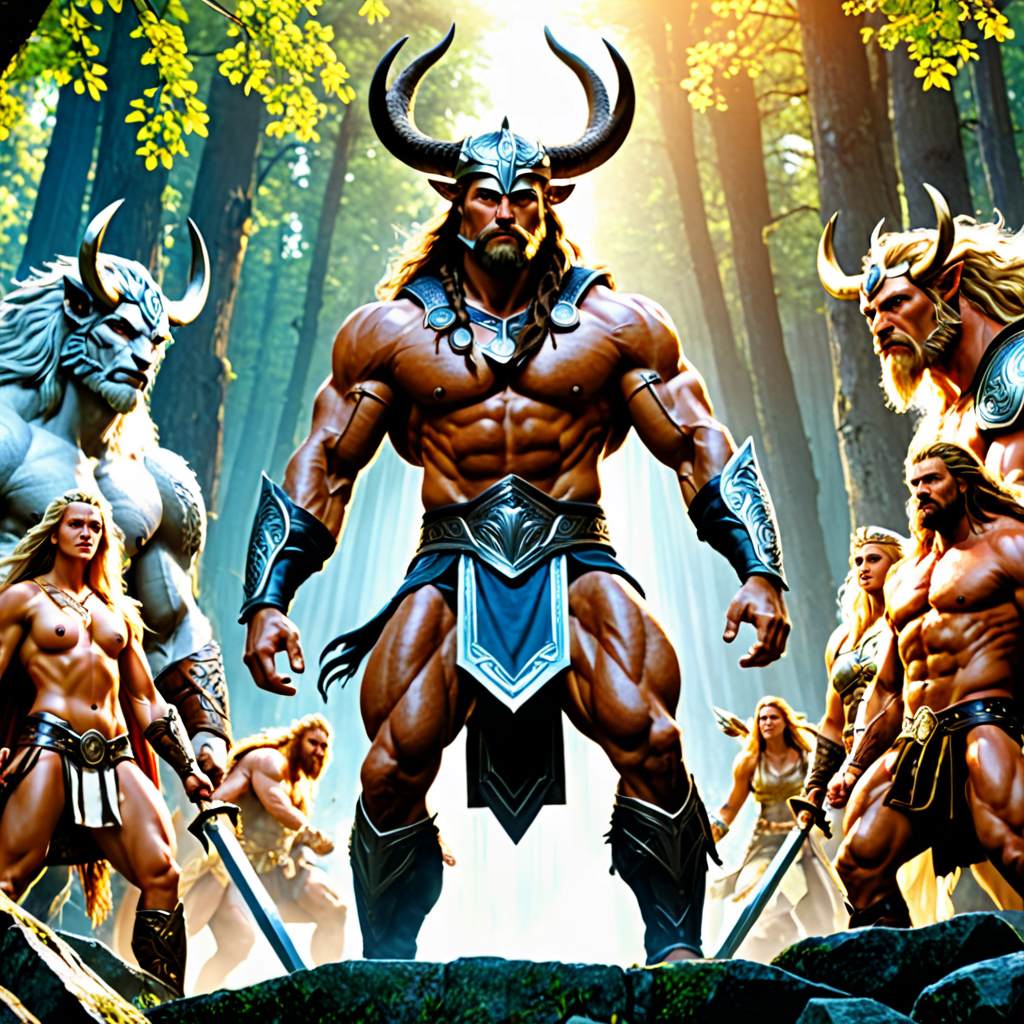The Concept of Transformation and Evolution in Norse Mythology
In Norse mythology, the theme of transformation and evolution is prevalent, with various gods, goddesses, and creatures undergoing significant changes that often symbolize growth, renewal, and the cyclical nature of life.
Transformation in Norse Mythology
Transformation plays a crucial role in Norse mythology, where beings can change their shapes or essence, reflecting the dynamic nature of existence. One prominent figure that embodies transformation is Loki, the trickster god, known for his shapeshifting abilities that enable him to take on different forms to deceive or aid others.
Evolution of Norse Deities
As Norse mythology unfolds, deities like Odin, the All-Father, and Thor, the god of thunder, undergo personal growth and development through various trials and experiences. These transformations highlight the divine ability to adapt, learn, and evolve over time.
Symbolism and Meaning of Transformation
In Norse mythology, transformation often symbolizes inevitable change, personal growth, and the interconnectedness of all beings. Be it through the metamorphosis of creatures like the mighty dragon Fafnir or the rebirth of the world in Ragnarok, these symbolic shifts reflect deeper truths about existence and the eternal cycle of life.
The Role of Transformation Today
Although rooted in ancient legends, the concept of transformation and evolution in Norse mythology continues to resonate in modern times. People draw inspiration from the gods’ ability to change, adapt, and overcome challenges, seeing echoes of their own struggles and transformations in these timeless myths.
FAQ About The Concept of Transformation and Evolution in Norse Mythology
What does transformation mean in Norse mythology?
In Norse mythology, transformation refers to the ability of gods, giants, and other beings to shift their forms and appearances. This concept is prevalent in the stories of gods like Loki, who often takes on different forms to achieve his goals or trick others.
How does evolution play a role in Norse mythology?
Evolution in Norse mythology is seen more as a concept of personal growth and development rather than the modern scientific understanding. Characters like Odin, who gains wisdom through sacrifice, exemplify the idea of personal evolution in Norse myths.
Can you provide an example of transformation in Norse mythology?
One notable example of transformation in Norse mythology is the story of the trickster god Loki, who transforms into various creatures like a salmon, a fly, and even a mare to achieve his objectives or escape difficult situations.
How do concepts of transformation and evolution intertwine in Norse mythology?
In Norse mythology, transformation often leads to personal growth and evolution for the characters involved. The ability to change forms or adapt to challenges reflects a deeper process of inner evolution and development in these ancient tales.





